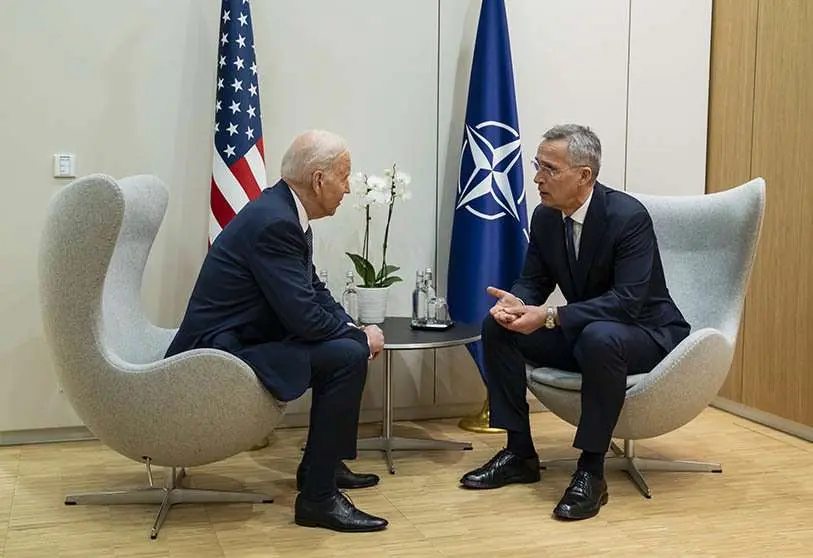Biden: "If NATO had not helped Ukraine, there would have been chaos in Europe"

Big decisions are on the horizon at the end of June, and US President Joe Biden is setting the stage for both the NATO summit in Madrid and the meeting of the heads of state and government of the EU-27.
In an interview with the Associated Press, the US president reveals the ultimate reason why he decided that NATO should be involved in helping Ukraine resist Russian aggression. "What would have happened," Biden himself asks, "if the current strongest power, NATO, an organised structure, had turned its back on Russian aggression and we had let an Army of over 100,000 [Russian] troops cross the borders to try to occupy and annihilate the culture of an entire people?"
And it is the president himself who answers: "I'm afraid to know what would have happened immediately: to see chaos taking over Europe and Russians moving into other countries in Europe. Just look at what they have done in Belarus. What would then happen in neighbouring countries? Just think what would happen in Poland, in the Czech Republic and ultimately in all the NATO countries.
Biden also addresses President Vladimir Putin's excuse for entering Ukraine, which he says was to prevent Kiev from joining NATO, as many of the former "satellite" countries of the Soviet Union have done as soon as the Soviet Union collapsed. "It seems that Putin wanted a kind of Finlandisation of Ukraine, and in the end what he got was a kind of "NATOisation" of Finland itself".
In view of these statements, it seems obvious that the NATO summit in Madrid will clearly set out a new strategy, in which Europe's security is once again at the forefront, and that Ukraine will not be carved up, at least for now, to placate Putin, as French President Emmanuel Macron has suggested, provoking the ire of Ukrainian President Volodymyr Zelenski.
Prior to this, the European Commission will deliver its opinion on Ukraine's candidate status for EU membership. It will undoubtedly be favourable, although it will have to be formally endorsed at the highest level at the summit on 23-24 June.
It is clear that the latter will be more of a gesture than an accelerated integration process. The acquis communautaire is important enough that an exceptional situation, such as the war in Ukraine, should not prevent any candidate from embracing the values that make the EU's main attraction more than military force. In any case, enjoying candidate status will already be a big enough step to give hope to the Ukrainian people and, above all, to convince them that they are part of the European family.

